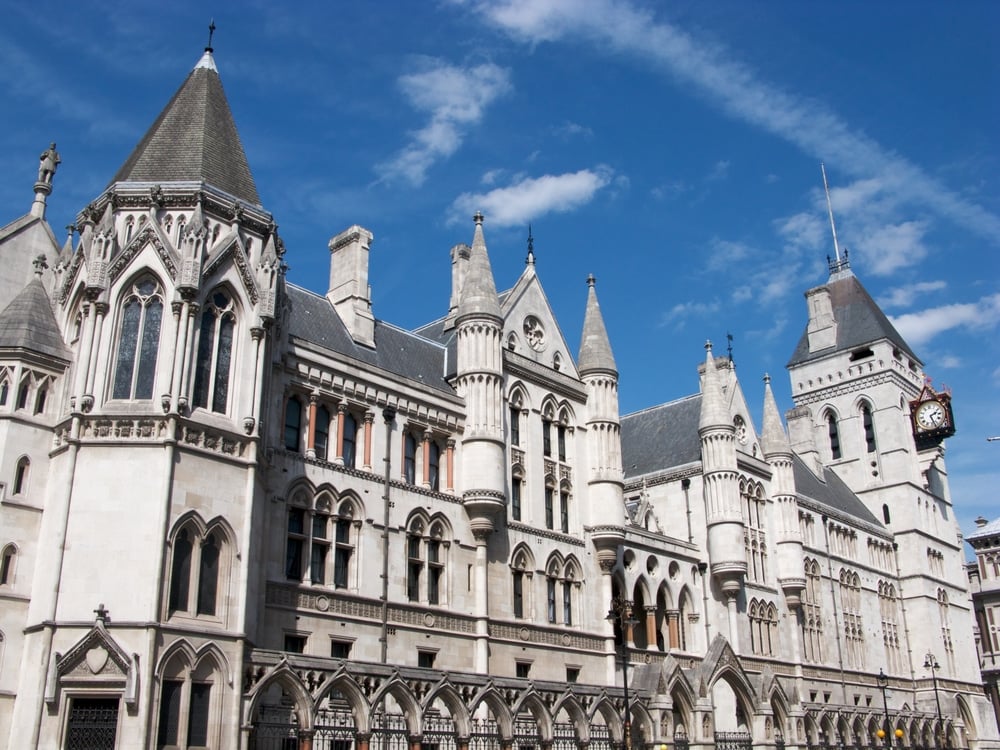Days
Hours
Minutes
Seconds
May 1 2026 - Renters' Right Act Commencement Day
You have 0 days to:
Serve any final Section 21 notices
Stop accepting above-asking rent offers
Prepare for the rental bidding ban
Remove “No DSS” from adverts
Remove “No Children” from listings
Show one clear rent price
Stop using fixed-term agreements
Switch to periodic tenancy templates
Check which tenancies go periodic
Stop taking rent before signing
Take no more than one month’s rent
Move all evictions to Section 8
Train staff on new notice rules
Create Section 13 process flow
Add two months to rent reviews
File court claims for Section 21s
Update landlord move-in grounds
Update landlord selling grounds
Send the RRA Information Sheet
Create written terms where missing
Update How to Rent processes
Review tenant screening questions
Update pet request processes
Stop backdating rent increases
Discuss rent protection backbooks
Act now before it is too late...
Your Guide to the Courts Process Reforms in the Renters (Reform) Bill
As part of the Renters (Reform) Bill, the government aims to align the abolition of section 21 “no-fault” evictions with speeding up the court's process. But what does this mean?
The Goodlord team
May 28, 2024
The Renters (Reform) Bill is set to be a major piece of legislation to overhaul the private rented sector. However, following the third reading of the bill, agents and lettings experts don’t know if this will still be the case.
One of the headline aims of the Renters (Reform) Bill is to abolish Section 21 “no-fault” evictions. However, in October 2023, the government announced that it would not proceed with abolishing section 21 “until reforms to the justice system are in place”.
The government further stated that they would only continue with abolishing section 21 when “sufficient progress has been made to improve the courts.”
So what are the current issues with the judiciary process, and what changes is the government proposing?
- What are the current issues with the courts process?
- Why is the government focusing on the courts process now?
- What needs to change in the courts process?
- What have we learnt from the third reading about the court process?
- What about the proposed Ombudsman?
- Want to know more?
1. What are the current issues with the courts process?
There has been a general sentiment in the property sector and the property industry press that the courts are suffering from backlogs.
Property Industry Eye reported in September 2023 that landlords were “at their tether” dealing with delays caused by funding cuts and the aftermath of the pandemic.
The government acknowledged that while most tenancies do not need to ever resort to going to court over issues, the system needs to be as “smooth and efficient as possible” for when there are disputes.
Proposals to change the court system were first outlined in the 2022 report, ‘A Fairer Private Rented Sector’. This included committing to work in partnership with the Ministry of Justice and the HM Courts and Tribunals Service.
However, it was only in October 2023 that the government explicitly stated that this needed to be a priority - above implementing Section 21.
2. Why is the government focusing on the courts process now?
It has been widely reported in the press that backbench MPs - predominantly, but not exclusively, from the Conservative party - were unhappy with the proposed abolition of section 21. This is because many are landlords themselves.
Section 21 has been a huge area for debate among landlords, although sentiment had been starting to soften. Goodlord’s State of the Lettings Industry report found that 72% of landlords felt negatively towards Section 21 in 2022; vs. 62% this year.
By agreeing to focus on reforming the courts first, the government has offered a significant concession to backbench MPs to win their support.
3. What needs to change in the courts process?
The government has identified key areas that need to be addressed before Section 21 is abolished. These include:
- Digitising more of the court process to be simpler and easier for landlords to use
- Exploring how the courts can prioritise cases that involve antisocial behaviour. This includes mandating that tenancy agreements should have clauses that antisocial behaviour can result in an eviction.
- Improving bailiff recruitment and retention - reducing admin to prioritise possession
- Providing early legal advice and better signposting to help tenants
4. What have we learnt from the third reading about the court process?
Abolishing section 21 was the biggest talking point when the Renters (Reform) Bill entered its third reading.
However, before the bill entered the third reading, Michael Gove, Secretary of State for Levelling Up, Housing and Communities, could not guarantee that section 21 would be abolished, and it is up to the House of Lords “to decide the rate of progress that we can make".
Ryan Heaven from Dutton Gregory explained what could change following the comments from the Renters (Reform) Bill's third reading. However, It is key to note that this is only an interpretation of the bill, and does not mean it will apply once the bill has turned into law.
The way the bill has been structured means that there could be a possible class of three tenancies that a section 21 notice, once the bill has been introduced. These are split into the following:
- The first class of tenancy - the tenancy started after the commencement date of the Renters (Reform) Bill has occurred, it is not possible to use a section 21 notice at all.
- The second class of tenancy - if a tenancy is fixed term before the commencement date, letting agents can use a section 21 notice during the term. As tenancies will have to change to periodic after the commencement date, once the fixed term is over and the tenancy has moved to periodic, section 21 cannot be used.
- Third class tenancy - if a tenancy is already periodic before the commencement date, the Renters (Reform) Bill will not apply, and letting agents can serve a section 21 notice. The only time the bill will affect those tenancies is when the secretary of state introduces an extended commencement date or backstop, and this won’t be achieved until the courts have been reformed.
Currently, this is just an interpretation of the Bill, and it is unclear whether this will be the case, or when the commencement date will be.
Landlords and letting agents need to keep an eye on the future of the bill during the House of Lords so they are in the know and in the best position for when the Renters (Reform) Bill does become law.
5. What about the proposed ombudsman?
The Renters (Reform) Bill outlines the creation of a new private renters’ ombudsman that all landlords must join.
The proposed changes, announced in October 2023, are to “address the gap in housing redress in relation to private sector tenant complaints.”
This means a focus on strengthening the mediation process, so cases do not have to immediately go to court.
In October 2023, the government suggested that it is still looking at different options around how the ombudsman service will be delivered, including how it fits within the existing landscape of agency redress schemes.
The government also seems to indicate the potential for landlords to initiate proceedings in cases of arrears or antisocial behaviour. For both tenant and landlord-initiated proceedings, the default assumption seems to be to try to resolve disputes through mediation wherever possible.
In April 2024, as part of the government’s amendments to the Renters (Reform) Bill, it was suggested that the Secretary of State can appoint the new ombudsman on such terms they deem fit. The Secretary of State can also remove the ombudsman at any time, regardless of whether the scheme is administered by a corporate body.
Delegations for the property ombudsman must be given in writing and can be varied or revoked at any time by the Secretary of State. However, this doesn't prevent the Secretary of State from exercising these functions themselves.
Read the full guide to the Ombudsman here
6. Want to know more?
Here are some extra resources on the Renters (Reform) Bill:
- 📜 Take our free, CPD-accredited Renters (Reform) Bill course
- 🎥 Watch our webinar on the bill (May 2023)
- 🎧 Listen to our podcast on the changes to come
- 📂 Download our fact sheet to Section 21
This article is intended as a guide only and does not constitute legal advice. Visit gov.uk for more information.







-min.jpg)
